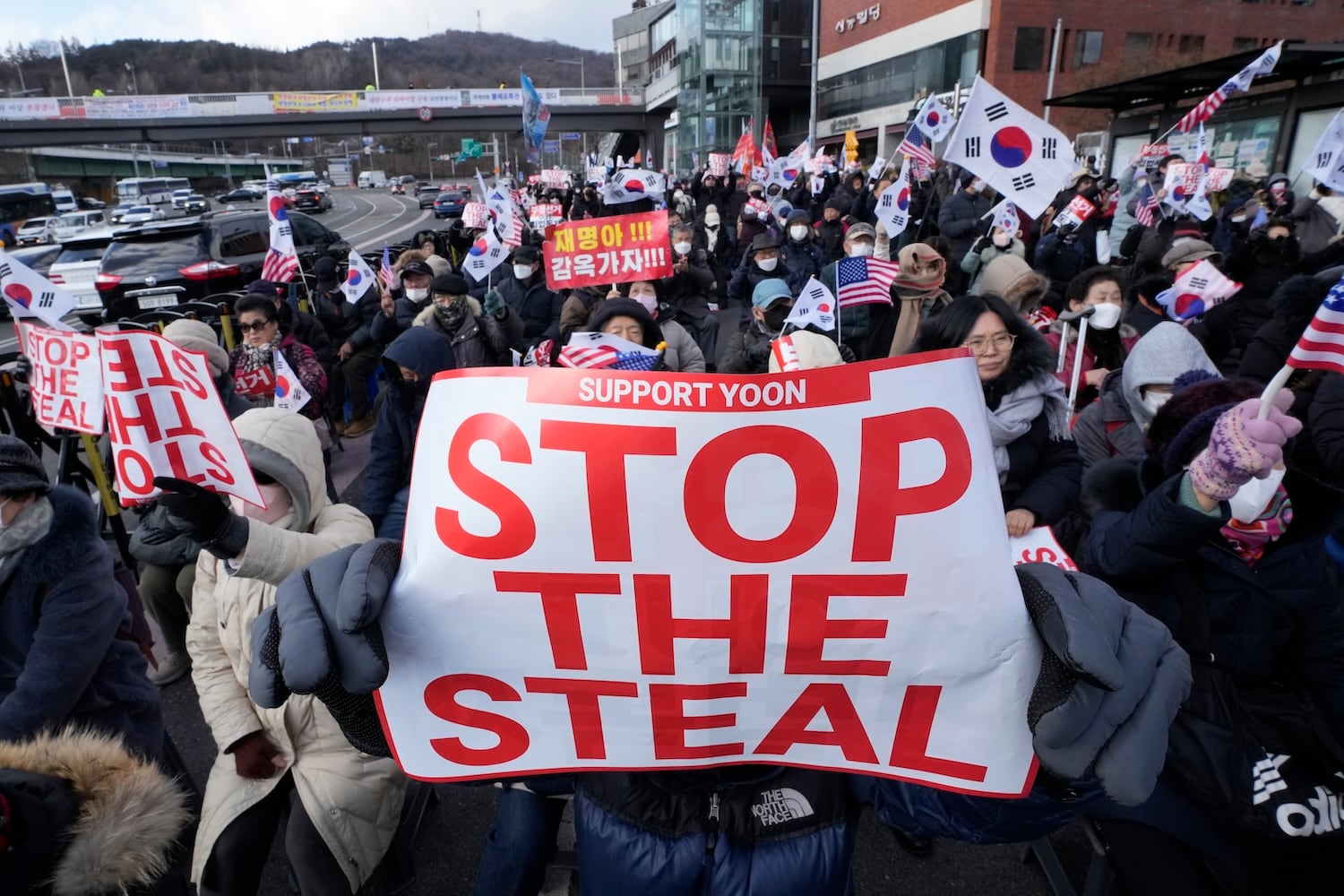As government authorities attempt to determine how to apprehend and search impeached South Korean President Yoon Suk Yeol, he has been shut up within his secured residential compound for weeks.
Late last week, a wall and hundreds of presidential security agents prevented dozens of investigators from entering the site, resulting in scuffles.
In preparation for another attempt to arrest the president on Wednesday, hundreds of pro- and anti-Yoon supporters have staged opposing protests in the streets close to the palace. One side pledged to defend Yoon, while the other advocated for his arrest and removal. Police barricades kept them apart.
The display at the compound comes after Yoon’s shocking declaration of martial law last month amid what appeared to be a normal standoff with the opposition, which controls parliament.
More drastic actions to imprison Yoon are being discussed by police and a government organization tasked with combating corruption. After a confrontation with the presidential security service, dozens of agency and police investigators were unable to apprehend Yoon last week.
The anti-corruption agency was able to secure a new warrant on Tuesday that prolonged the time frame for Yoon’s arrest after the original court warrants to search his home and detain him expired on Monday. The duration of the new warrant’s validity was not immediately confirmed by the agency.
Due to his brief declaration of martial law on December 3, Yoon has been refusing to come in for interrogation.
In response to a liberal opposition that has slowed down his program with its legislative majority, he has characterized his power grab as an essential act of governance. He has promised to battle against attempts to remove him until the very end.
Despite the brief period of martial law, the nation’s financial markets, politics, and diplomacy have been rocked for weeks. The edict also revealed the extreme polarization of South Korean society.
On Monday, Yoon’s attorneys complained to public prosecutors about Oh Dong-woon, the chief prosecutor of the anti-corruption agency, and six other police and anti-corruption personnel for planning Friday’s detention attempt, which they claim was unlawful.
A series of political repercussions followed Yoon’s imposition of martial law.
Since Yoon imposed martial law and sent troops to encircle parliament, the anti-corruption agency, which is in charge of a combined investigation with the police and military, has been considering allegations of insurrection. Hours later, lawmakers who had broken through the roadblock voted to end martial law.
On December 14, parliament decided to impeach Yoon on charges of insurrection, suspending his presidential authority. The Constitutional Court has started considering whether to reinstall Yoon or formally remove him from office.
In a heated confrontation with the presidential security agency that lasted more than five hours on Friday, over 150 investigators attempted to apprehend Yoon.
A barricade of about ten vehicles and about 200 members of the presidential security forces and troops prevented the agency’s investigators and police from approaching within 220 yards of Yoon’s residential building after they managed to get past a military unit securing the residence’s grounds.
The head of the presidential security service, Park Jong-joon, responded in a statement to claims that his agency has turned into Yoon’s private army, claiming that it is required by law to defend the current president.
According to Yoon’s attorneys, they want to lodge complaints against roughly 150 police and anti-corruption detectives who participated in Friday’s detention attempt.
The current political unrest is influenced by a combination of geography and history, despite the fact that this scenario is unique.
With China, Russia, Japan, and the United States all participating in a grand global game on the peninsula that juts out from Asia’s east coast, the Koreas have been surrounded by superpowers for millennia.
Deep divisions exist in South Korea, affecting many facets of life, including politics, gender, class, and culture.
The conclusion of World War II, when American and Soviet soldiers met in the center of the Korean Peninsula and decided to split the region into zones of influence supported by Washington and Moscow, is largely responsible for the profound political division. In 1948, this crystallized into rival, separate Koreas, and in 1950, it erupted into war and irreversible split. Before democracy arrived in South Korea in the late 1980s, the country was ruled by a succession of autocrats.
The unrest experienced by recent presidents, many of whom have been imprisoned for corruption after leaving office, reflects some of the fervor that permeates South Korean politics.
Millions of people demonstrated against conservative President Park Geun-hye in 2016, which made history as the first democratically elected leader to be removed from office during South Korea’s democratic transition.
Park served a long prison sentence for bribery and other offenses until being pardoned by her liberal opponent and successor in late 2021.
The Associated Press
Note: Every piece of content is rigorously reviewed by our team of experienced writers and editors to ensure its accuracy. Our writers use credible sources and adhere to strict fact-checking protocols to verify all claims and data before publication. If an error is identified, we promptly correct it and strive for transparency in all updates, feel free to reach out to us via email. We appreciate your trust and support!







